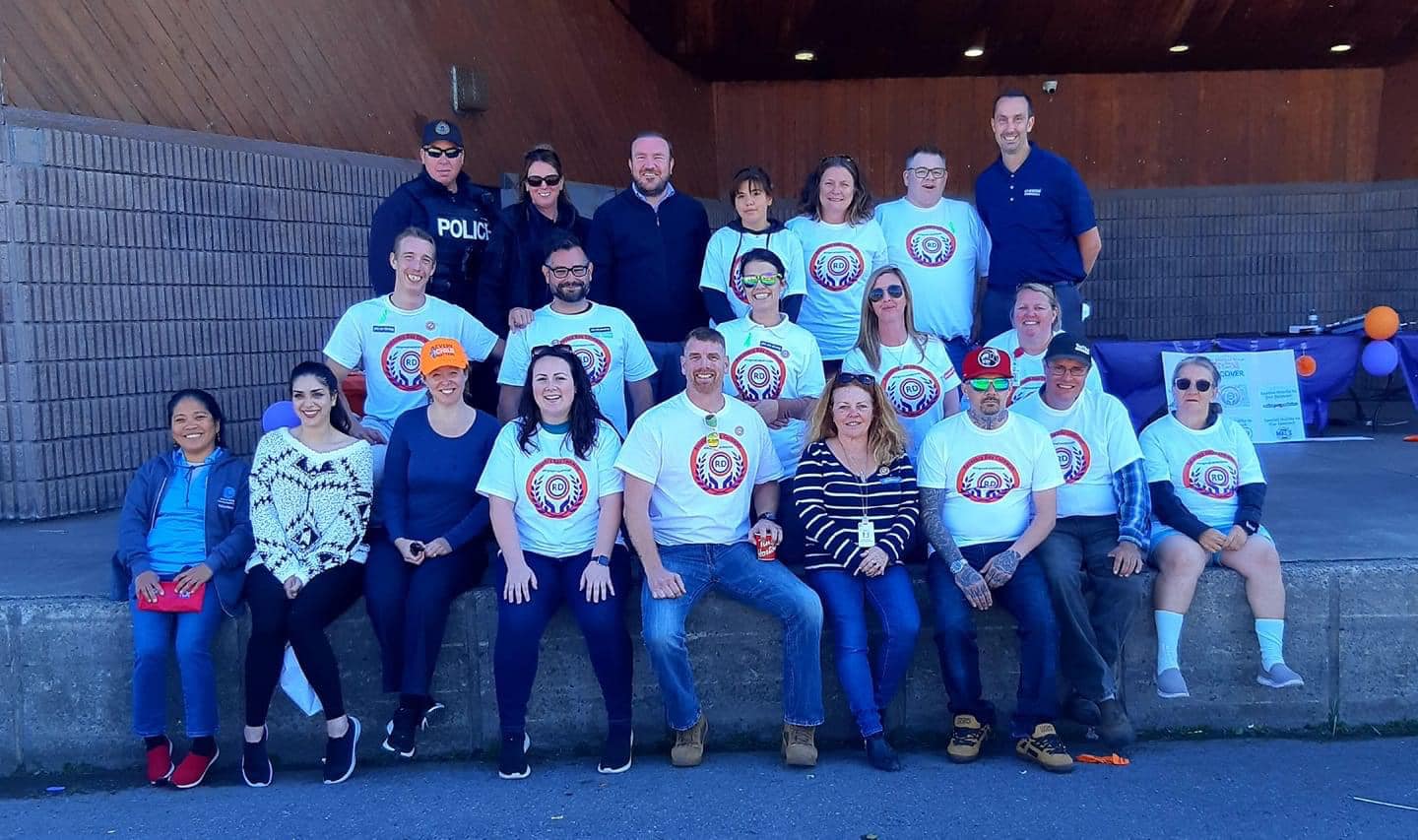The energy and support were great at this year’s Recovery Day event in Cornwall, which took place last Saturday. The sun was shining as community members sat on Lamoureux Park benches listening to speakers at the Bandshell and interacted with the many community partners who attended the event.
The purpose of Recovery Day is to reduce stigma around addiction so people can ask for help without feeling shame. Removing shame and stigma isn’t only important before and during recovery – it’s also important to treat individuals who are recovered and past inmates with respect.
Jessabelle Pettipas, a CAPSA (Community Addictions Peer Support Association) volunteer who will be six years sober in November, is very outspoken in her recovery and finds purpose in helping people recover from addiction. A few years ago, she was on a six-month waiting list to get treatment from the Royal Ottawa Hospital and didn’t feel like she was going to make it.
“I read in the paper that they were going to be opening a new mental health center here and I thought … I can’t live in the city where I’ve used all these years, it’s too difficult for me. I saw this piece of paper and said, ‘I’m moving to Cornwall’ and I got services in two weeks,” she explained.
Cornwall may have shorter wait times for addiction services than larger cities like Ottawa and Montreal, but we still have work to do when it comes to supporting individuals with substance abuse disorder.
One thing that community members and professionals can do to help is being mindful of their language. Recovery First Language, developed by CAPSA, is a way of using certain language (and not using some words) to avoid discrimination and make it easier for people to ask for help.
“If you’re going to a hospital for example, and you’re hearing, ‘Oh they’re a drunk,’ from a professional nurse, is that going to allow you to go get help anymore?” Pettipas asked, “I’m happy to announce that CMHA just asked me to come and teach their professionals how to speak, and this is huge – that’s pivotal – because I am one of those people and I know how it felt for 14 years to be put in those positions.”
Other people who took the stage to speak at Recovery Day were elected officials MP Eric Duncan and MPP Nolan Quinn, Kent (a pharmacist from Respect RX) who gave a demonstration on how to use Naloxone nasal spray, and the VSMART team who attended with their unmarked police vehicle and spoke about their program within the Cornwall Police Service.
To help others who are struggling, several brave individuals who attend Alcoholics, Narcotics, Sex, and/or Cocaine Anonymous meetings removed their anonymity to speak about their recovery experiences, something that is practically unheard of.
HELP AHMRS, one of the event sponsors, was also present at the event raising funds for their soft opening set to happen by the end of the year. Their plan is to operate addictions support services from Friday at 6pm to Monday at 8am, gradually working towards a 24/7 service. The team’s focus is on evenings and weekends because they’ve experienced addiction firsthand and know that these are times when addicts need help and other services aren’t available.
Currently, HELP AHMRS operates a 24/7 HelpLine with text and calling capabilities. The phones are answered by people with lived experience and not professional counsellors, but they can offer referrals to outside services and support. The number of the HelpLine is 613-936-7339. You can also reach out to HELP AHMRS on Facebook.



